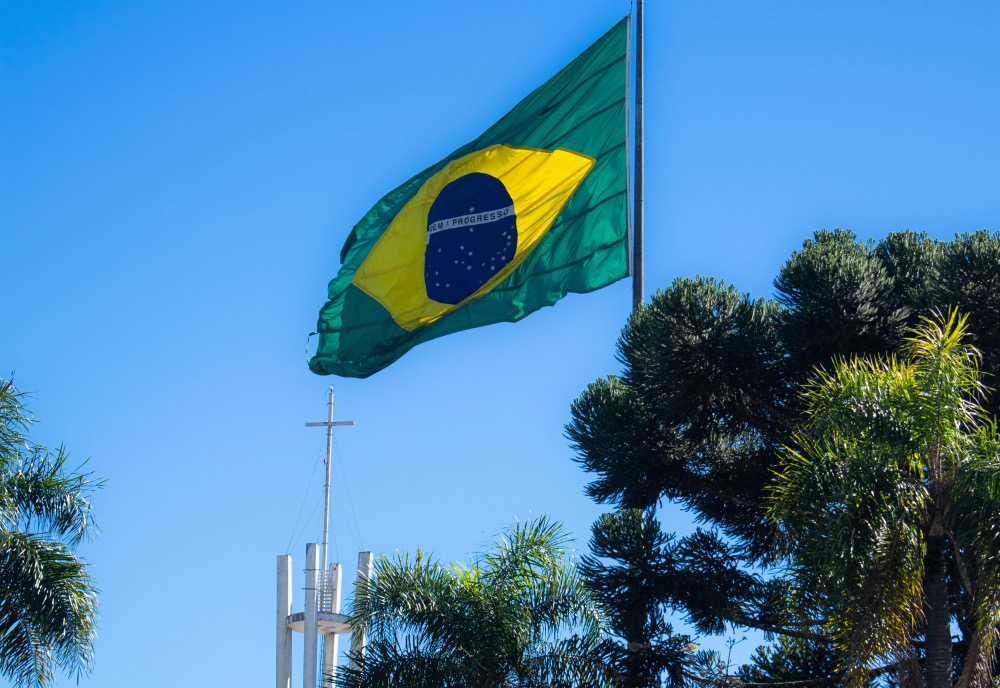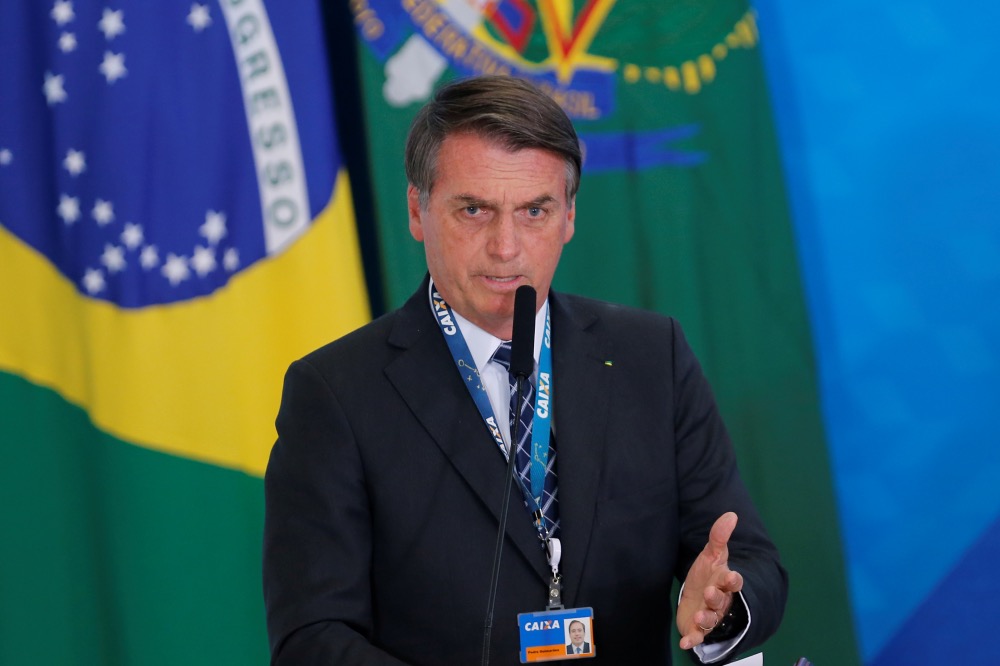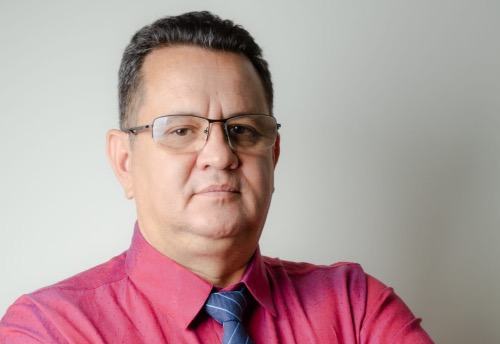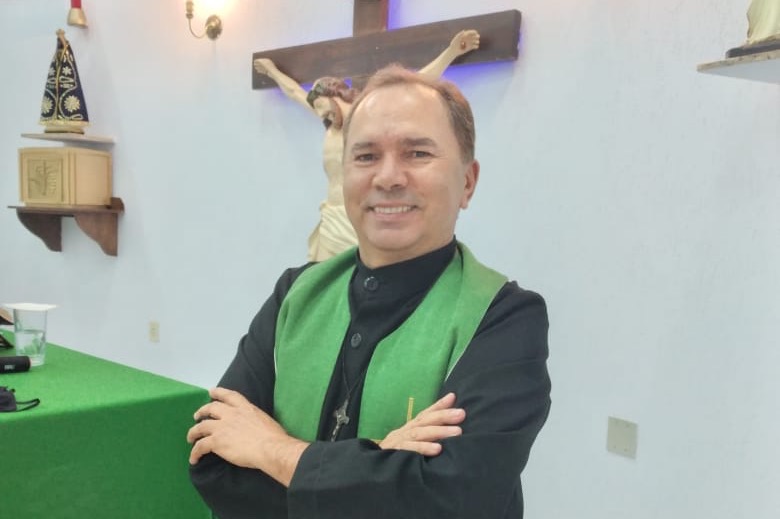
EDUARDO CAMPOS LIMA reports from São Paulo…
São Paulo, Brazil
Over the past few decades, Brazilians have become increasingly accustomed to the presence of evangelical Christian leaders in the nation’s political sphere, not the least since the election of the evangelical-supported Jair Bolsonaro as the nation’s President in 2018.
“The rapid expansion of the Christian Right, especially Pentecostals, in Brazilian politics began back in the 1980s with the founding of the ‘Bancada Evangelica’ [the Congress’ Evangelical bloc] and gave rise to ‘Bolsonarismo’, as his main constituency are evangelicals and conservative Catholics,” explains Andrew Chesnut, a professor and religious studies expert at Virginia Commonwealth University.

The Brazilian flag with a cross. PICTURE: Mateus Campos Felipe/Unsplash
Chesnut, author of the first academic book in English on the Pentecostal boom in Brazil – Born Again in Brazil: The Pentecostal Boom and the Pathogens of Poverty, points out that this Christian constituency, responding to the preaching they hear in churches, on the internet and TV, tend to see politics through the lens of “spiritual warfare”.
“Brazil is imagined to be in the midst of a cosmic battle between the forces of good and evil, the latter of which is represented by the political left and Afro-Brazilian religions such as Umbanda and Candomblé,” Chesnut says.
“The rapid expansion of the Christian Right, especially Pentecostals, in Brazilian politics began back in the 1980s with the founding of the Bancada Evangelica [the Congress’ Evangelical Bloc] and gave rise to ‘Bolsonarismo’, as his main constituency are evangelicals and conservative Catholics.”
– Andrew Chesnut, a professor and religious studies expert at Virginia Commonwealth University.
Recent municipal elections in Brazil show just how intertwined religion and politics have become in Brazil. According to the news website Metrópoles, some 1,012 candidates had registered “pastor” as part of their official name prior to the 15th November poll while another 1,007 candidates used the title ‘padre‘ [priest or father in Portuguese]. Rabbis and leaders of African Brazilian religions also ran for office, but the majority of the religious candidates were connected to Christianity.
There are some, however, who have expressed concern over this intersection of faith and politics, in particular about how pastors have been using their growing social and political power to influence political outcomes.
These concerns have already translated into action by law enforcement – in 2016, for example, Federal Police launched an operation in the city of Feira de Santana, in Bahia State, in response to claims an evangelical pastor and his group were giving food donations and providing healthcare assistance for churchgoers who agreed to vote for him.
But in August this year, Brazilian Supreme Court Justice Luiz Edson Fachin launched a new bid to curtail the power of religious figures, introducing to the Superior Electoral Court a proposal for a new category of abuse during elections specifically dealing with the abuse of “religious power”. Under the proposed new law, candidates who took advantage of their position as religious leaders to influence the vote of churchgoers would face specific penalties.
Yet, despite Fachin’s claim – reported in the Folha de S Paulo newspaper – that “the churches and their leaders display powers capable of debilitating the freedom to exercise the vote and of weakening the balance of the forces in dispute”, the proposal failed to gain the backing of the majority of the court’s members.
Lawyer Luiz Eduardo Peccinin, a specialist in electoral legislation, explains that the court concluded that Fachin’s thesis “shouldn’t be accepted in order to avoid the adoption of too broad a concept of abuse of authority by religious leaders”.
“If the freedom of vote is somehow offended, the law already has mechanisms to prevent it,” he says. He adds that while the judiciary has failure to take up the proposal, Congress still has the authority to do so in the future.

Brazilian President Jair Bolsonaro speaks during a ceremony at the Planalto Palace in Brasilia, Brazil, on 20th August, 2019. PICTURE: Reuters/Adriano Machado/File photo.
But that seems to be an unlikely prospect.
“There’s no possibility of such a thesis being approved in Congress in the future,” Pastor Raul Ferreira, Jr, a communications assistant for the ‘evangelical bloc’ in the Brazilian Congress – a group which numbers some 200 members of Congress, tells Sight. “Nobody would defend this idea there.”
Ferreira, Jr, argues that the concept of electoral abuse by religious leaders is based on an incorrect principle.
“Not every evangelical church-goer vote[s] for an evangelical candidate. Evangelicals aren’t a bunch of stupid people who just do what the pastor tells them so,” he says.
A D V E R T I S E M E N T
{subscriber-ad}
Baptist Pastor Amauri Barboza, who unsuccessfully ran for the city council in Marilia, São Paulo State, in the recent elections, says Justice Fachin “was probably moved by ideological reasons” in what he describes as an attempt to “reduce the church’s power”.
“I think that misdeeds happen among members of other categories too,” he says. “The fact that pastors are candidates doesn’t mean that we’re building a church there [in the government]. It means that we’re taking the principles of the Kingdom of God there.”

Baptist Pastor Amauri Barboza
Pastor Barboza ran for office for the first time in 2008. He wasn’t elected but ended up being invited to occupy a position in the social assistance division of the city government. He worked with abandoned teenagers – some of them drug addicts – for two years, then moved to a branch where he assisted a broader segment of the city’s vulnerable population.
“I’ve been a pastor for 25 years and I always gave shelter to the neediest among the ones who came to us. As a city council member, I intend to create a house to welcome women victims of domestic violence,” he says.
“To give shelter is a Christian value. The church can’t be closed in itself. It has a great public influence.”
It’s not just evangelical Christian leaders who have been involved in politics.
Catholic priest, Father Fernando Fraga, from the city of Araraquara – also in São Paulo State, believes “God needs committed men” in order to govern.
“The religious leader who accompanies the people knows very well its needs and wishes,” he tells Sight. “Serious priests and pastors can be very good political leaders.”
Fr Fraga has run for the Brazilian Congress in 2018 and, despite not having enough votes to secure him a post in the legislature in Brasilia, ended up being the most voted for candidate in his city.
“But the great support I received led my party to invite me in 2020 to run for mayor,” he says.
Catholic priests are forbidden by the canon law to be members of political parties and to occupy elective political positions, except in case of emergency.
Fr Fraga says that before deciding to run for Congress in 2018, he asked his bishop’s permission and took leave from his religious duties.
“I never intended to mistake my religious and my political activities,” he notes, speaking to Sight before he conceded defeat in the mayoral race. “If I become Araraquara’s mayor, I’m not transforming the city government into a parish. I’ll administer the city for everybody.”

Catholic priest, Father Fernando Fraga
Fr Fraga didn’t include the Portuguese word “padre” (priest) in his electoral name.
“One of the other candidates uses his military rank as part of his name in campaign,” he says. “I don’t want to be an elected priest, but an elected citizen who will govern for people from all religions.”
Candidates from the Christian Right didn’t generally fare well in the recent municipal elections – the first held since President Jair Bolsonaro’s victory in 2018, according to Professor Chesnut.
Chesnut says that while the Christian Right “is now a permanent fixture of the Brazilian political landscape”, if the recent elections are seen as a “”bellwether” for the next presidential contest, “it’s quite possible we will see further setbacks to the ‘Bancada Evangélica’, just as the Christian Right in the US wasn’t able to re-elect Trump.”
But he adds that the foundations of evangelical political power in Brazil seem to remain quite strong, noting that even pastors who have been denounced for corruption and other misdeeds while in office have been re-elected by churchgoers.
“Just as the American Christian Right is blind to Trump’s myriad moral and legal transgressions, evangelicals and conservative Catholics in Brazil are so swept up in the culture wars over abortion, same sex marriage, ‘gender ideology’ and other hot button issues that they often vote for candidates whose economic policies run counter to their own interests,” Chesnut notes.





